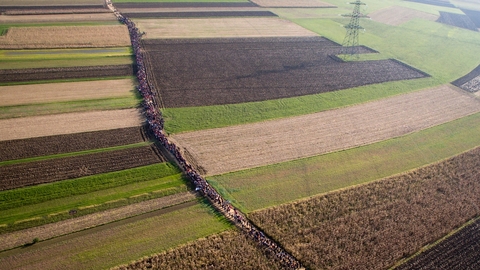-
Tips for becoming a good boxer - November 6, 2020
-
7 expert tips for making your hens night a memorable one - November 6, 2020
-
5 reasons to host your Christmas party on a cruise boat - November 6, 2020
-
What to do when you’re charged with a crime - November 6, 2020
-
Should you get one or multiple dogs? Here’s all you need to know - November 3, 2020
-
A Guide: How to Build Your Very Own Magic Mirror - February 14, 2019
-
Our Top Inspirational Baseball Stars - November 24, 2018
-
Five Tech Tools That Will Help You Turn Your Blog into a Business - November 24, 2018
-
How to Indulge on Vacation without Expanding Your Waist - November 9, 2018
-
5 Strategies for Businesses to Appeal to Today’s Increasingly Mobile-Crazed Customers - November 9, 2018
Migrant surge across the Balkans continues after EU-sponsored agreement to
Greece will have to receive a few 30 000 migrants by end-2015, and Western Balkan states will contribute by opening 50 000 more, whereas the UN’s refugee agency will provide another 20 000 spaces, according to the 17-point “plant of action” agreed by leaders of Southeastern European nations, Austria, Germany, and EU Commission President Jean-Claude Juncker.
Advertisement
It comes amid warnings from European leaders that the continent was “falling apart” trying to deal with the crisis – with thousands of migrants arriving every day.
Juncker said the UNHCR also will support an increase in the capacity of refugee reception centers by another 50,000 places along the Western Balkans migrant route.
The plan approved by the EU Commission also envisions border management measures, such as scaling up the Poseidon Sea Joint Operation in Greece and increasing the presence of the Frontex border agency in the Aegean Sea.
Juncker told reporters the summit had agreed a programme of 17 “pragmatic and operational measures to ensure people are not left to fend for themselves in the rain and cold”.
Almost 250,000 people have passed through the Balkans since mid-September, the Associated Press reported.
Slovenia has found itself at the epicentre of the refugee crisis in recent weeks as Hungary has closed its border with Serbia, forcing thousands of refugees to re-route over the Croatian-Slovenian border.
Slovenia’s police said Monday nearly 10,000 migrants entered Slovenia from Croatia in the same period, bringing the total number of arrivals in the past 12 days to almost 75,000.
“Europe must show it is a continent of values, a continent of solidarity…”
Hungarian Prime Minister Viktor Orban, so often the target for building border fences that diverted the flow of refugees to other nations, simply said, “Hungary is not on the route anymore, so we are just observers here”.
Pledging to act fast on agreements by Balkan leaders on Sunday to slow and control the flow of Syrians and others making their way to Germany from Turkey, officials acknowledged people would keep coming and said persuading them to accept orderly relocation arrangements would be vital.
Miro Cerar, the Slovenian prime minister, said the European Union was days from collapse and claimed his country was struggling to cope with the “unbearable” influx of migrants.
“I do believe that the decisions that were in consensus among those present in this meeting will give an important contribution to allow for the right bodies of the European Union to take the decisions that are needed to make sure that this situation that we always considered it was manageable, will become effectively managed”.
Half a year later, there is no answer.
Advertisement
Juncker called for solidity, during an interview with German newspaper Bild which was published on Sunday, urging member states to stop transferring migrants to neighbouring countries.





























